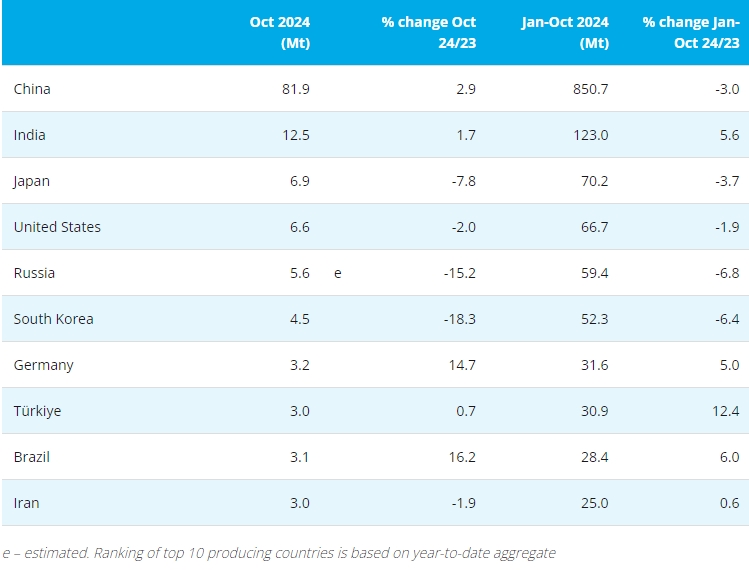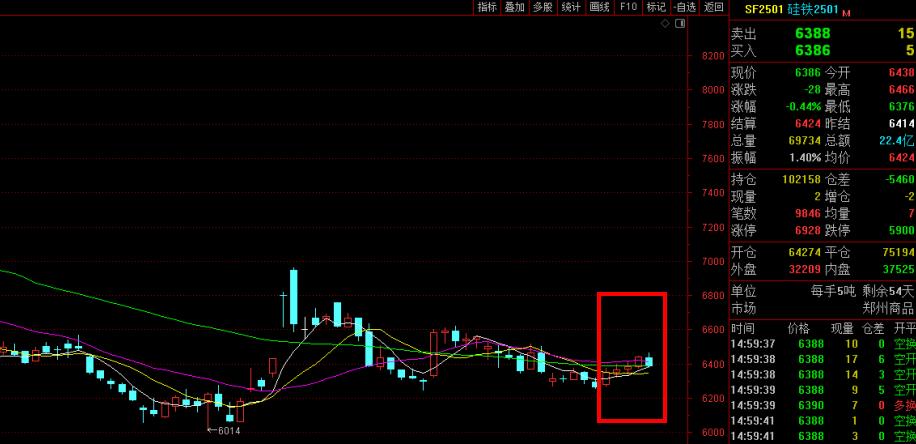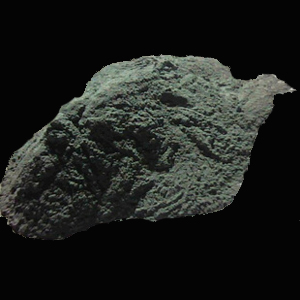The Industry Ministry has urged the Trade Ministry to curb an influx of alloy steel imports, which it says poses a threat to the domestic steel industry due to unfair practice.
Industry Minister MS Hidayat requested Trade Minister Gita Wirjawan to assess the alloy steel import mechanism made available by the Trade Ministry for producer importers or registered importers, through a letter dated July 29, a copy of which was obtained by The Jakarta Post.
“We opine that it will be necessary to evaluate the Trade Ministry’s 2012 regulation on iron and steel imports, which revises the previous regulation issued in 2010, by including alloy steel tariffs in the addendum of the new rule,” Hidayat said in the letter. “Import proposals from producer importers/registered importers or addition/change of harmonized system codes or volume/types of products should consider technical advice from the Industry Ministry.”
The letter responds to complaints lodged by domestic steel producers who said steel imports had jumped significantly since 2009 in the domestic iron and steel market due to unfair practice, as confirmed by the Industry Ministry’s latest study.
They alleged that the importation of steel alloyed with low boron content had provided a leeway for importers to avoid regular import duties, anti-dumping duties and safeguard duties imposed by the government.
Non-alloy steel products are subject to those duties, while steel with low boron content enjoys free or lower duties.
Profile steel, for example, a boron-contained alloy steel product, enjoys import duties of only up to 5 percent, while non-alloy steel is charged with 15 percent duties.
Anti-dumping duties are also applied on non-alloy steel or carbon steel in the form of hot rolled coil (HRC), cold rolled coil (CRC) and profile. Little additions of boron would convert non-alloy steel and carbon steel into alloy steel, thereby lifting the products concerned from punitive duties.
Imports of non-alloy steel in the form of HRC and CRC slumped by 44 percent in 2010, 40 percent in 2011 and 25 percent in 2012, and are suspected to have been delivered into types of alloy steel,
whose imports from China, Japan and Taiwan, have perked up considerably, the Industry Ministry’s study suggests.
The practice has caused the government to suffer Rp 145 billion (US$12.87 million) in losses each year.
Indonesian Iron and Steel Industry Association (IISIA) vice chairman Irvan Kamal said the alleged unfair trade practice had injured the local industry.
“As imported steel gets a tax reduction, the competitive edge of the domestic industry shrinks,” he said. Imports of boron-contained steel reached 1 million tons last year, according to the association.
Trade Minister Gita Wirjawan said he was yet to receive a copy of the letter sent by his counterpart.
“We will follow up the issue in near time,” he told the Post.
Indonesia’s local steel output is expected to rise by 23.1 percent to 4.8 million tons this year, while domestic consumption will surge by between 6 and 9 percent this year to an estimated 11.4 million tons, with between 35 and 40 percent of that consumption coming from imports due to limited domestic capacity, according to IISIA.
Steel has long been a hot topic to trade remedy measures worldwide due to allegations that countries
put subsidies on production, or that producers dump their products overseas.
Industry Minister MS Hidayat requested Trade Minister Gita Wirjawan to assess the alloy steel import mechanism made available by the Trade Ministry for producer importers or registered importers, through a letter dated July 29, a copy of which was obtained by The Jakarta Post.
“We opine that it will be necessary to evaluate the Trade Ministry’s 2012 regulation on iron and steel imports, which revises the previous regulation issued in 2010, by including alloy steel tariffs in the addendum of the new rule,” Hidayat said in the letter. “Import proposals from producer importers/registered importers or addition/change of harmonized system codes or volume/types of products should consider technical advice from the Industry Ministry.”
The letter responds to complaints lodged by domestic steel producers who said steel imports had jumped significantly since 2009 in the domestic iron and steel market due to unfair practice, as confirmed by the Industry Ministry’s latest study.
They alleged that the importation of steel alloyed with low boron content had provided a leeway for importers to avoid regular import duties, anti-dumping duties and safeguard duties imposed by the government.
Non-alloy steel products are subject to those duties, while steel with low boron content enjoys free or lower duties.
Profile steel, for example, a boron-contained alloy steel product, enjoys import duties of only up to 5 percent, while non-alloy steel is charged with 15 percent duties.
Anti-dumping duties are also applied on non-alloy steel or carbon steel in the form of hot rolled coil (HRC), cold rolled coil (CRC) and profile. Little additions of boron would convert non-alloy steel and carbon steel into alloy steel, thereby lifting the products concerned from punitive duties.
Imports of non-alloy steel in the form of HRC and CRC slumped by 44 percent in 2010, 40 percent in 2011 and 25 percent in 2012, and are suspected to have been delivered into types of alloy steel,
whose imports from China, Japan and Taiwan, have perked up considerably, the Industry Ministry’s study suggests.
The practice has caused the government to suffer Rp 145 billion (US$12.87 million) in losses each year.
Indonesian Iron and Steel Industry Association (IISIA) vice chairman Irvan Kamal said the alleged unfair trade practice had injured the local industry.
“As imported steel gets a tax reduction, the competitive edge of the domestic industry shrinks,” he said. Imports of boron-contained steel reached 1 million tons last year, according to the association.
Trade Minister Gita Wirjawan said he was yet to receive a copy of the letter sent by his counterpart.
“We will follow up the issue in near time,” he told the Post.
Indonesia’s local steel output is expected to rise by 23.1 percent to 4.8 million tons this year, while domestic consumption will surge by between 6 and 9 percent this year to an estimated 11.4 million tons, with between 35 and 40 percent of that consumption coming from imports due to limited domestic capacity, according to IISIA.
Steel has long been a hot topic to trade remedy measures worldwide due to allegations that countries
put subsidies on production, or that producers dump their products overseas.
Copyright © 2013 Ferro-Alloys.Com. All Rights Reserved. Without permission, any unit and individual shall not copy or reprint!
- [Editor:editor]



 Save
Save Print
Print Daily News
Daily News Research
Research Magazine
Magazine Company Database
Company Database Customized Database
Customized Database Conferences
Conferences Advertisement
Advertisement Trade
Trade


















Tell Us What You Think